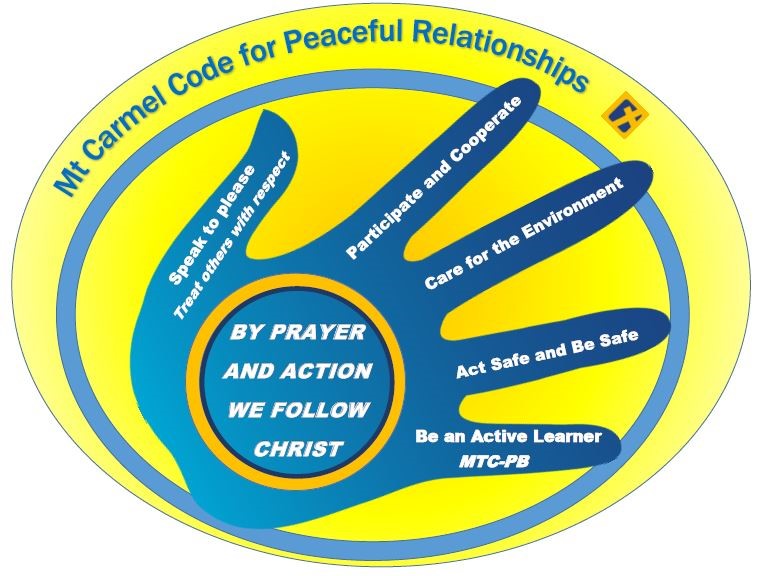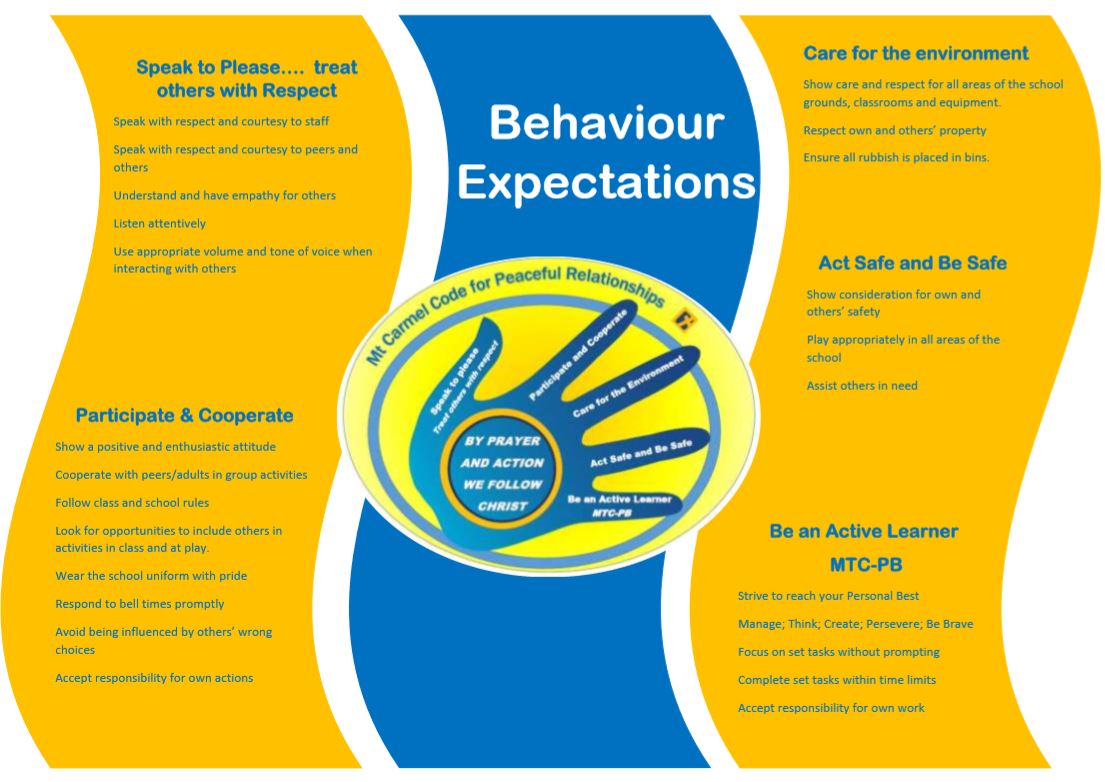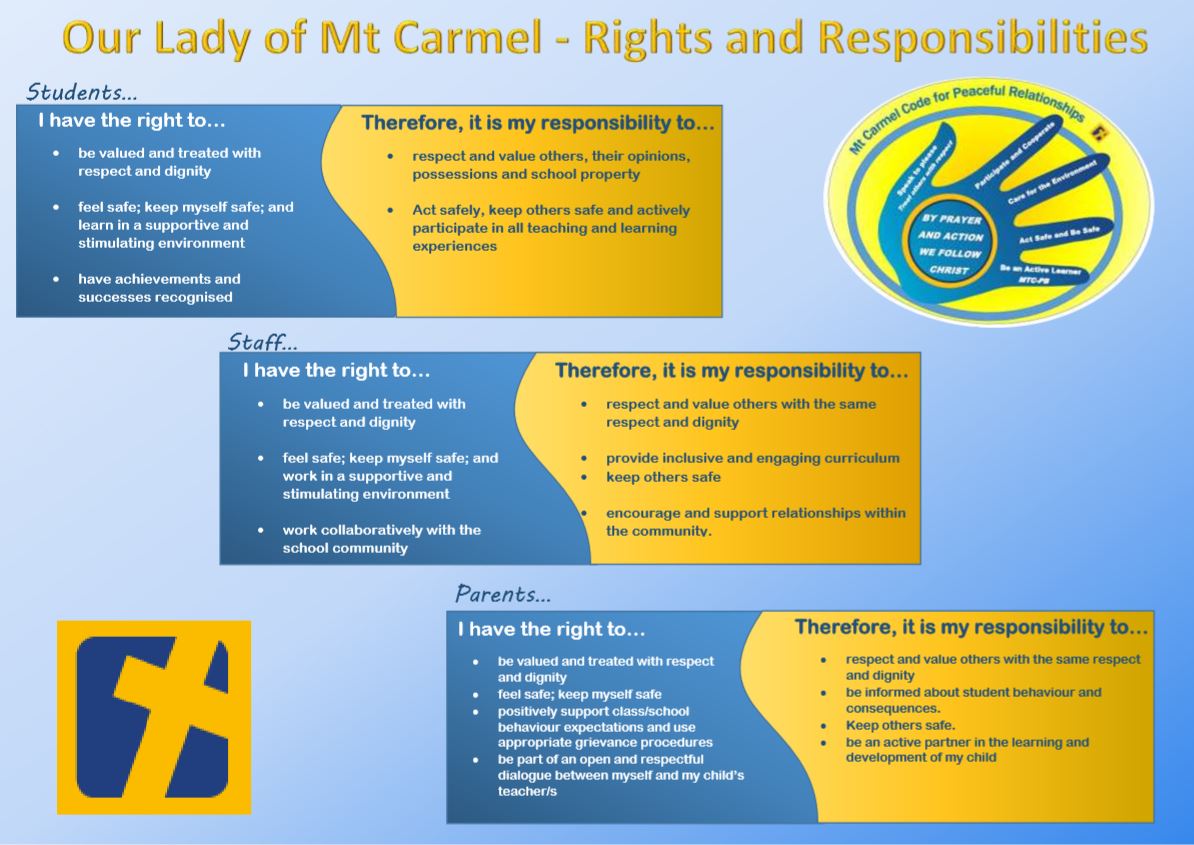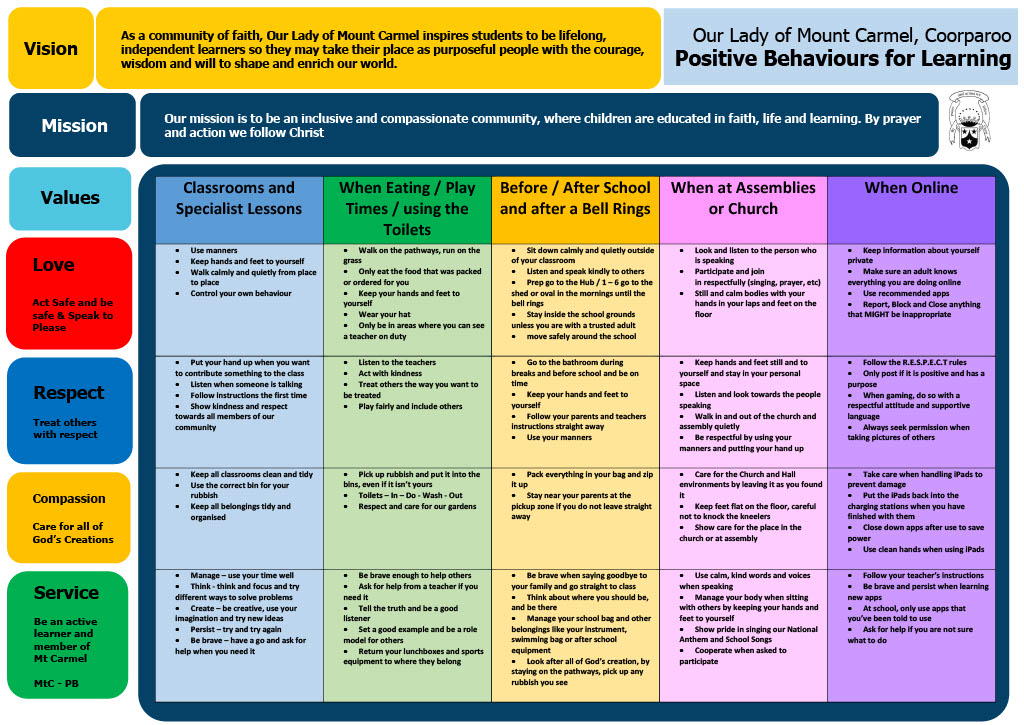


© Brisbane Catholic Education, Our Lady of Mt Carmel School (2016)

© Brisbane Catholic Education, Our Lady of Mt Carmel School (2021)
Our community of Brisbane Catholic Education (BCE) schools value an inclusive approach to student support to enable students to successfully complete their studies. We are entrusted to nurture and support students in a safe and welcoming environment that is grounded in our Catholic faith in which stewardship and advocacy are key values. As Catholic educators, we hold fundamental beliefs that are foundational to our work with students, parents and colleagues. As such we value: our Catholic Christian tradition; dignity and justice for all; Catholic Christian community; high quality learning; collaboration and subsidiarity (shared wisdom); creativity; stewardship; and a mutual accountability.
In Catholic schools the goal of formation in right behaviour and respectful relationships occur in a supportive community where students are provided with models of Christ-centred living and where they can learn from their mistakes and build and restore relationships in a climate of safety, acceptance and reconciliation.
PB4L - Positive Behaviours for Learning is a system approach to positive behaviour that includes supports for all students. The aim of implementing the framework is to achieve increased academic and social progress and achievement for all students by using evidence-based practices. One of the focus areas is explicit teaching of behaviours that assists students to access learning – academically and socially - at all stages of development throughout their education.
Theoretical and conceptual characteristics
PB4L is the redesign of learning environments, not students. The theoretical and conceptual understandings of PB4Learning are firmly linked to Behavioural Theory and Applied Behavioural Analysis (Carr et al., 2002). This perspective emphasises that observable behaviour is an important indicator of what individuals have learned and how they operate in their environment. Environmental factors are influential in determining whether a behaviour is likely to occur, and new and alternative pro-social behaviours can be taught (Sugai & Horner, 2002; Sugai et al., 2008)
Continuum of support and key features
An important component of PB4L is the adoption of a continuum of behavioural supports (Diagram 2) that, like academic instruction, acknowledges that students will need differing levels of behavioural interventions and supports to be successful at school. Within the continuum there are three levels of support.
Tier 1 Universal Supports:
This first level focuses on universal behavioural and academic supports for all students. Here the focus is on prevention of problem behaviours, providing explicit teaching of expected behaviours and creating positive learning environments across all settings in the school. Research has shown that approximately 80-85% of students will respond to proactive universal supports, display the desired appropriate behaviours and have few behaviour problems (Horner & Sugai, 2005; Lewis, Newcomer, Trussell & Ritcher, 2006).
Tier 2 Targeted Supports:
This second level focuses on targeted supports for students who continue to display problem behaviour even with the universal supports in place. Using data analysis, students are identified early, before problem behaviours become intense or chronic, to receive targeted supports such as small group social skill instruction, academic supports, mentoring and/or self-management strategies (Sailor et al., 2013).
Tier 3 Personalised Supports:
This third level focuses on personalised supports that are intensive and individualised. These students will require highly individualised behaviour support programs based on a comprehensive behavioural assessment, which at times, will include mental health professionals and family and community services.
By building a connected continuum, everyone in the school is aware of how each level of support is connected to the universal systems i.e. every targeted and individualised intervention uses the universal set of behavioural expectations to increase the likelihood of maintenance and generalisation to other contexts.
School-wide expectations encourage consistent communications and establish a common language of expectations for all staff and students and across all settings. Agreed upon student expectations promote the school’s Catholic Identity and provide consistency across the staff and school community.
Click here to view our updated  Mt Carmel Student Behaviour Support Plan 2025.pdf
Mt Carmel Student Behaviour Support Plan 2025.pdf